MercoPress. South Atlantic News Agency
Economy
-
Wednesday, May 8th 2013 - 09:56 UTC
Maduro promises Uruguay permanent supply of oil and full Mercosur commitment

President Nicolas Maduro promised his Uruguayan counterpart Jose Mujica a “permanent” supply of petroleum from oil-rich Venezuela during the first leg of his visit to Mercosur member countries. Maduro also announced the signing of a strategic alliance in the energy sector with Uruguay.
-
Wednesday, May 8th 2013 - 09:51 UTC
Argentina offers tax amnesty for undeclared dollars and assets in the country and overseas

The administration of President Cristina Fernandez announced the drafting of a bill intended to establish a recovery plan for undeclared assets within the country and abroad in order to strengthen the level of foreign reserves of the Central Bank. The government estimates Argentines hold 160bn dollars outside the financial system in the country and overseas.
-
Wednesday, May 8th 2013 - 09:40 UTC
First Latinamerican and BRIC representative next head of WTO
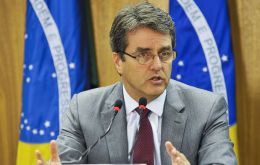
Brazil's Roberto Azevedo has won the race to become the next head of the World Trade Organization, the first candidate from Latinamerica and from the BRIC club of emerging economies to take the job.
-
Wednesday, May 8th 2013 - 09:29 UTC
China fears a US/EU free trade area could become protectionist; looks to Latinamerica
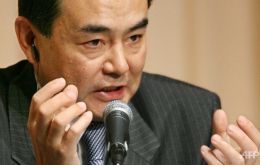
China has raised concerns about European Union plans to negotiate an ambitious free trade deal with the United States, fearing it is a protectionist move and at the same time Beijing new administration is doubling efforts towards Latinamerica and Africa.
-
Wednesday, May 8th 2013 - 09:23 UTC
Argentines keep travelling overseas despite the ‘dollar clamp’ and the ‘Coca Cola formula’

Despite the ‘dollar clamp’ and other obstacles to purchase the US currency in Argentina, the number of Argentines travelling abroad increased by 8% last March in comparison to the same period the year before although they spent 6.2% less than in 2012, it was reported by the National Statistics Bureau (INDEC).
-
Wednesday, May 8th 2013 - 09:19 UTC
Uruguay’s inflation in April eased for third month running, but remains above target
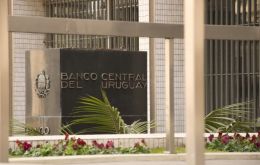
Inflation in Uruguay during April slowed down for third month running, according to the latest release from the country’s Statistics Office, INE. Consumer prices in the fourth month of the year climbed 0.45% with inflation in the last twelve months reaching 8.14%, compare to 8.54% in March.
-
Wednesday, May 8th 2013 - 09:02 UTC
Fiat plans to invest 7bn dollars in next three years to remain main automaker in Brazil
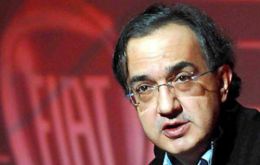
Italy’s carmaker Fiat is upping its stake in Brazil, pouring about 7 billion dollars into local investments by 2016, according to a plan its CEO Sergio Marchionne handed President Dilma Rousseff on Monday.
-
Wednesday, May 8th 2013 - 08:57 UTC
Petrobras finds ‘good quality’ oil in the sub-salt area of the Santos Basin
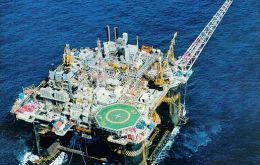
Brazil's state-run oil company Petrobras found “good quality” oil in a sub-salt area of the offshore Santos Basin, one of the world's most promising oil frontiers, according to a securities filing by Petrobras on Tuesday.
-
Wednesday, May 8th 2013 - 02:44 UTC
Dollar in Argentina breaks 10 Pesos barrier, despite Cristina Fernandez and her “I want to leave” minister
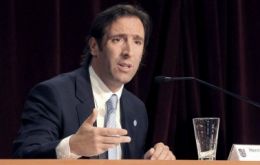
The ‘blue’ or parallel dollar in Argentina beat a new record on Tuesday by breaking the 10 Pesos milestone and ending trading at 10.08 Pesos. The official rate meantime remained relatively stable and closed at 5.16 and 5.21 Pesos (buying and selling price).
-
Tuesday, May 7th 2013 - 09:28 UTC
IMF again warns Argentina about protectionist and foreign currency exchange policies
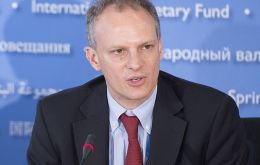
The International Monetary Fund Director for the Western Hemisphere, Alejandro Werner, warned on Monday about the “negative effect” that the existence of two foreign currency exchange markets and protectionist policies bring to Argentina.
